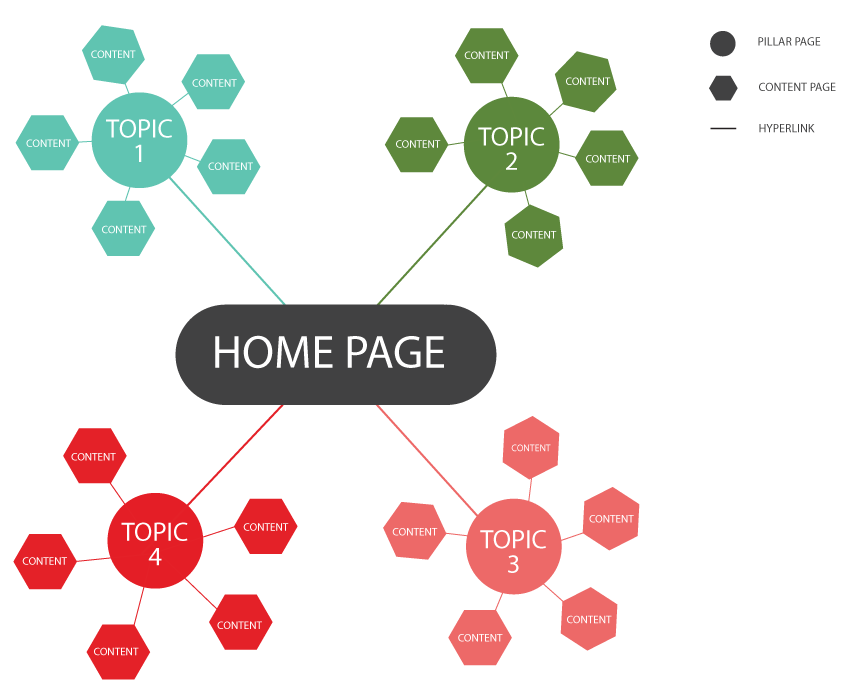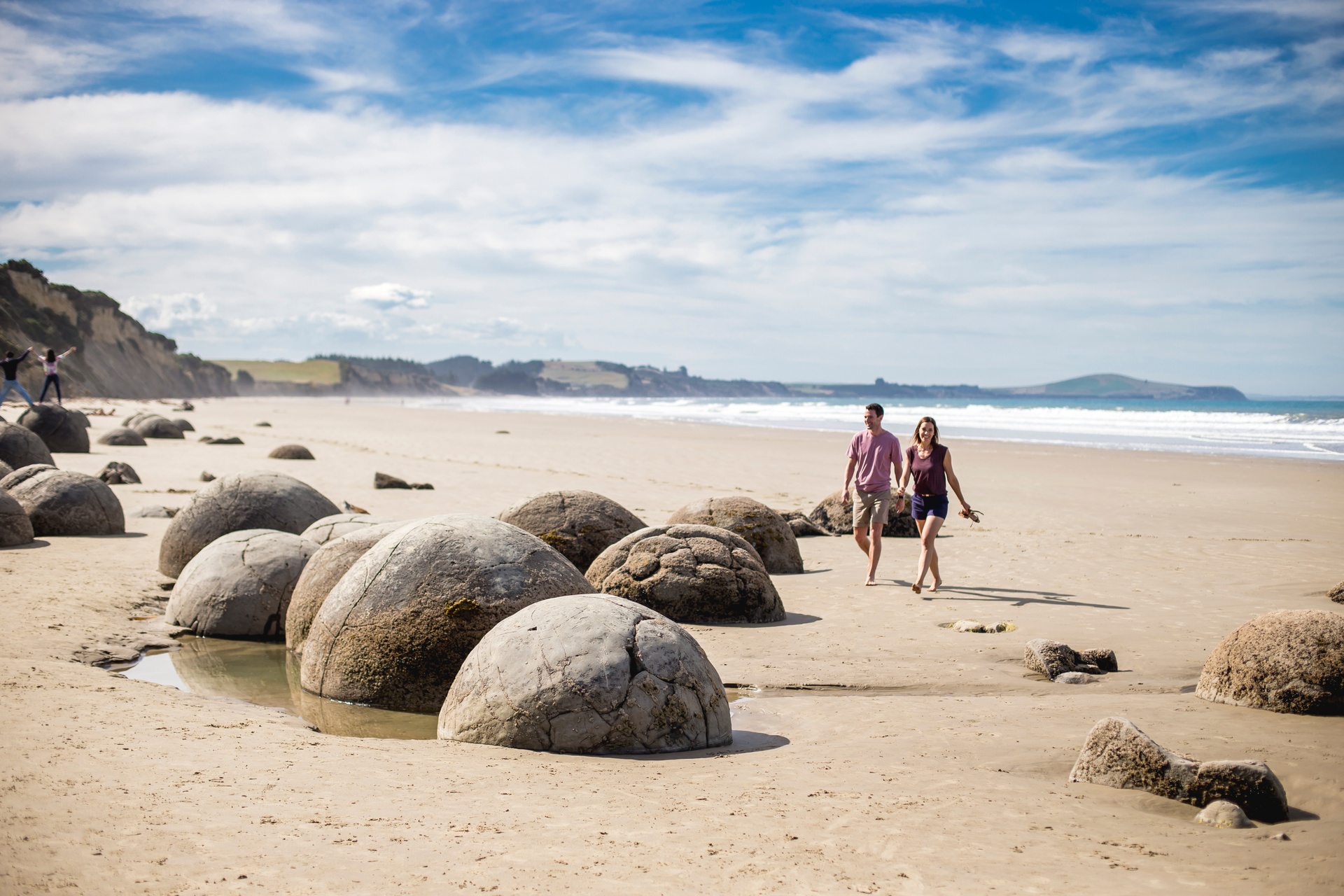Unless you’ve been hiding under a rock, you’ll know that Google plays a crucial part in driving qualified visitors to your website. How strong your online visibility is for relevant search queries is what will make or break your digital presence. From people researching best places to stay before the Tongariro Crossing to what to pack for a day hike with children in Te Anau, Google is a crucial part of the online travel research and booking process.
The way people are searching for information has changed. In 2019, short key phrases are rare (think ‘walking in New Zealand’) – users prefer much longer, more granular wording. Searching for something like best NZ Great Walks for teenagers has become the norm – because people believe searching this way will yield far more relevant results to the kind of information they’re looking for.
How has Google responded?
With user experience at its core, Google has responded by updating their algorithms to match this change in search behaviour.
The first step was taken in Google’s 2013 Hummingbird update – an algorithm created to begin understanding full phrases and sentences, rather than focusing on keywords. This began the official switch from a keyword to a topic focus. A couple of years later came Google’s 2015 RankBrain update; an algorithm to understand the context of people’s search queries.
Algorithms have now evolved to be able to understand the topic of a search and link it to similar searches they have had in the past, therefore allowing Google to deliver web pages which best answers the search query. The way Google ranks tourism websites has moved to favour those that embrace topic-based content organisation.
What does this mean for your tourism website?
Google is now favouring websites that organise their content based on certain topics. Since competition to be found and rank highly on search engines is fierce, tourism operators are competing against each other to implement the best search engine optimisation (SEO) practices possible. If a tourism site does not have a focus on topic-based content organisation, it is unlikely to any kind of substantial Google visibility. This is where the Topic Cluster approach to SEO comes in.
The Topic Cluster Model
In light of these algorithm changes, SEO experts (like us!) are employing the Topic Cluster approach to ranking in Google. This model is a way of organising a site’s content pages using cleaner site architecture, where the website is structured in clusters of topics.
The model begins with a website’s home page having a number of pillar pages, each surrounding a different topic. Off each pillar page are a number of linked content pages, which directly relate to that pillar page’s topic and different relevant keywords. This model shifts a website’s focus towards targeting specific topics you want search engines to recognise you in as the expert – so when somebody searches for them, you rank highly for users.

The Topic Cluster approach to content and SEO
Why should I embrace topic clusters to lift Google visibility?
The Topic Cluster Model makes it easier for search engines to find information from your site as it is organised neatly in terms of topics. By using a clear, orderly arrangement, your website tells search engines what should be prioritised and creates a network of engaging content that offers a better user experience. Google is then more likely to rank your pages higher, which will in turn drive more traffic to your website. Don’t forget that with the Topic Cluster Model, every time a single content page does well the entire cluster increases in Google rankings as a result – one of the key perks to this approach to SEO!
Getting started with topic clusters
If you’re looking at website optimisation or a new website this year, we would strongly suggest you employ the Topic Cluster approach to organising your content.
- Get started by completing an SEO audit, and understanding which pages are your MVP’s in terms of traffic generation, and which are dragging the chain.
- From there, combine search phrase research from your target audiences to define what your key topics should be
- Build these key topics out with more granular information that is related to the topic itself, but is more targeted at a specific, longer tail search phrase
- Get writing!
Learn more about what best practice looks like when it comes to content marketing here.
How can we help?
With every website (even our own) we create or optimise, we use the Topic Cluster Model when creating the content layout. We believe that by using this model, the approach to content becomes more streamlined, making search engines and your users happier – and more likely to convert. We see an increase of organic visitors (people who come via Google) of around 5% – 10% every month compared to websites that don’t use this approach to SEO.
The topic cluster approach to SEO for tourism ensures you have the foundations in place to rank higher on search engines, increasing traffic on your website and driving more people through the conversion funnel.
Shift your approach to SEO to the Topic Cluster Model this year to create a seamless, conversion-driven experience for people researching and booking travel.
#MAVERICKTOURISM
Celebrating the women of Maverick who keep on raising the bar and lifting us up to new heights this #InternationalWomensDay. They`re marketers, they`re mothers, they`re managers… and some days, they`re absolute magicians! Here`s to the wāhine toa right across the industry who help deliver incredible holiday memories for our manuhiri, every day of the year 💃🙌

Celebrating the women of Maverick who keep on raising the bar and lifting us up to new heights this #InternationalWomensDay. They`re marketers, they`re mothers, they`re managers… and some days, they`re absolute magicians! Here`s to the wāhine toa right across the industry who help deliver incredible holiday memories for our manuhiri, every day of the year 💃🙌
Sharing the aroha this Valentines 💖
#valentines #welovemarketing #digitalmarketing #digitalagency

Sharing the aroha this Valentines 💖
#valentines #welovemarketing #digitalmarketing #digitalagency
We`re so excited to welcome two new superstars to the Maverick team 🥳
Zara is our new Content & Social Media Coordinator (aka our Insta ninja 🥷 and resident #tiktok expert) and Emi is our new Digital Performance Coordinator who brings a fresh perspective and a hunger for industry insights, helping to deliver the best results for our clients.
Welcome to the team, we`re SO excited to have you on board! 🎉
#newhire #welcome #kiaora #wearemaverick #newteammates

We`re so excited to welcome two new superstars to the Maverick team 🥳
Zara is our new Content & Social Media Coordinator (aka our Insta ninja 🥷 and resident #tiktok expert) and Emi is our new Digital Performance Coordinator who brings a fresh perspective and a hunger for industry insights, helping to deliver the best results for our clients.
Welcome to the team, we`re SO excited to have you on board! 🎉
#newhire #welcome #kiaora #wearemaverick #newteammates
Final emails = sent 📧
Out-of-office = on 👩💼
Brews = flowing 🍺
Meri Kirihimete and Happy Holidays from the Maverick family to yours, and we`ll see you back in Jan 🎄🏖

Final emails = sent 📧
Out-of-office = on 👩💼
Brews = flowing 🍺
Meri Kirihimete and Happy Holidays from the Maverick family to yours, and we`ll see you back in Jan 🎄🏖
Our Christmas shenanigans slayed this year 🎉 Swapping spreadsheets for sequins and sparkles, we rounded off 2023 at the hilarious @caluzzicabaret 🥂🎭

Our Christmas shenanigans slayed this year 🎉 Swapping spreadsheets for sequins and sparkles, we rounded off 2023 at the hilarious @caluzzicabaret 🥂🎭
You`ve got the questions, we`ve got the answers!
Join an incredible line-up of Maverick experts and industry thought leaders, as we dive into the biggest trends and innovations in tourism marketing that you NEED to know.
There`s just a handful of tickets remaining - so grab yours now and we`ll see you at Auckland`s B:HIVE on Tuesday 5 December 🎫
#tourismmarketing #faqs #demystifyingAI #networking #conference

You`ve got the questions, we`ve got the answers!
Join an incredible line-up of Maverick experts and industry thought leaders, as we dive into the biggest trends and innovations in tourism marketing that you NEED to know.
There`s just a handful of tickets remaining - so grab yours now and we`ll see you at Auckland`s B:HIVE on Tuesday 5 December 🎫
#tourismmarketing #faqs #demystifyingAI #networking #conference
AI mythbusters, at your service 🧠👩🔧👨🔧
#ReadyOrNot #TourismMarketing #DemystifyingAI #WeAreMaverick

AI mythbusters, at your service 🧠👩🔧👨🔧
#ReadyOrNot #TourismMarketing #DemystifyingAI #WeAreMaverick
Happy Halloween from the guys and ghouls at Maverick 🎃👻
@bhivenz #halloween #spooky #trickortreat #marketingagency #wearemaverick

Happy Halloween from the guys and ghouls at Maverick 🎃👻
@bhivenz #halloween #spooky #trickortreat #marketingagency #wearemaverick
Five cheers for Kelly! 🎉🎉🎉🎉🎉
An absolute rockstar in creating digital ads, crunching ROI numbers, navigating the stormy seas of Facebook, and baking yummy lolly cake - we`re stoked to celebrate Kelly`s (our very first employee!) five year anniversary at Maverick this week.
A massive mihi and arohanui to our favourite `ninja` Kelly - Maverick wouldn`t be the same without you 🥰
#5years #workaversary #wearemaverick

Five cheers for Kelly! 🎉🎉🎉🎉🎉
An absolute rockstar in creating digital ads, crunching ROI numbers, navigating the stormy seas of Facebook, and baking yummy lolly cake - we`re stoked to celebrate Kelly`s (our very first employee!) five year anniversary at Maverick this week.
A massive mihi and arohanui to our favourite `ninja` Kelly - Maverick wouldn`t be the same without you 🥰
#5years #workaversary #wearemaverick
Out and about catching up with our wonderful clients - there’s nothing better than experiencing their epic products first-hand! Thanks for having us @volcanicairnz and @offroadnzrotorua 🙌🤗

Out and about catching up with our wonderful clients - there’s nothing better than experiencing their epic products first-hand! Thanks for having us @volcanicairnz and @offroadnzrotorua 🙌🤗
Lets Talk
Ready to connect?
We're a team of tourism and digital experts who hang our hats on doing high impact work that affects your bottom line.




